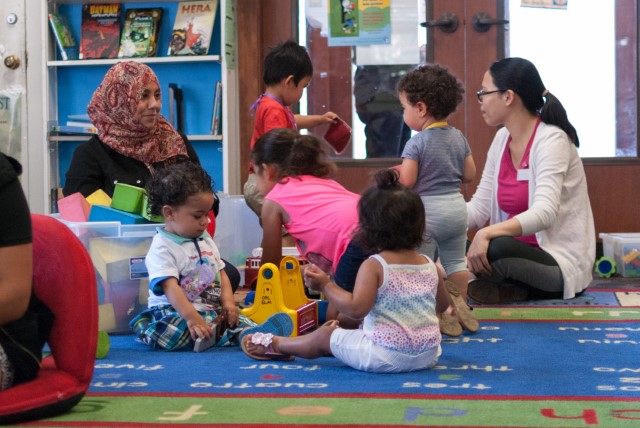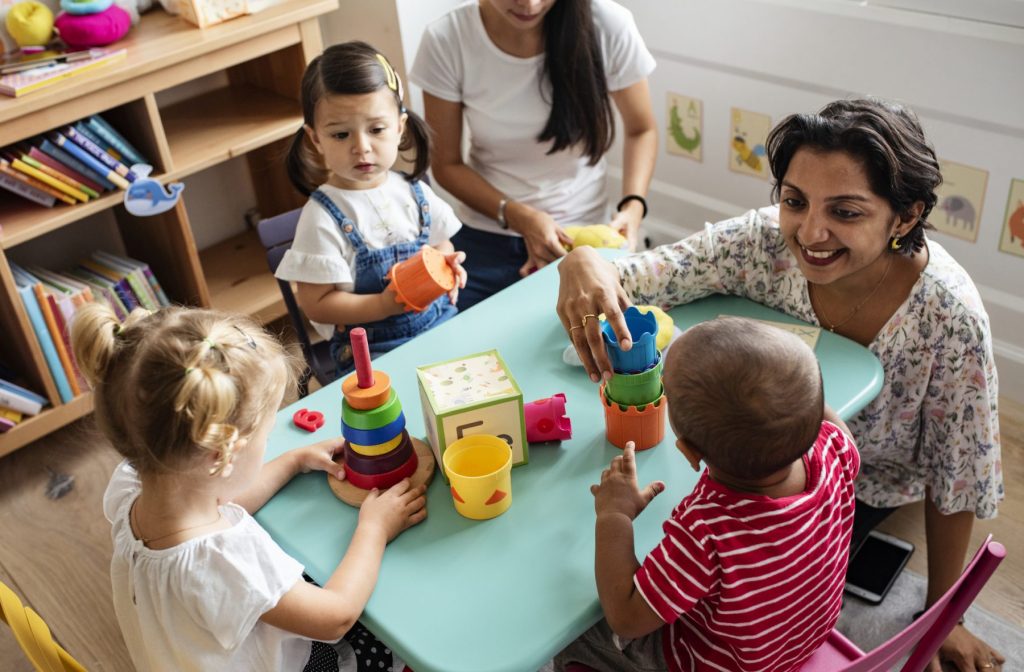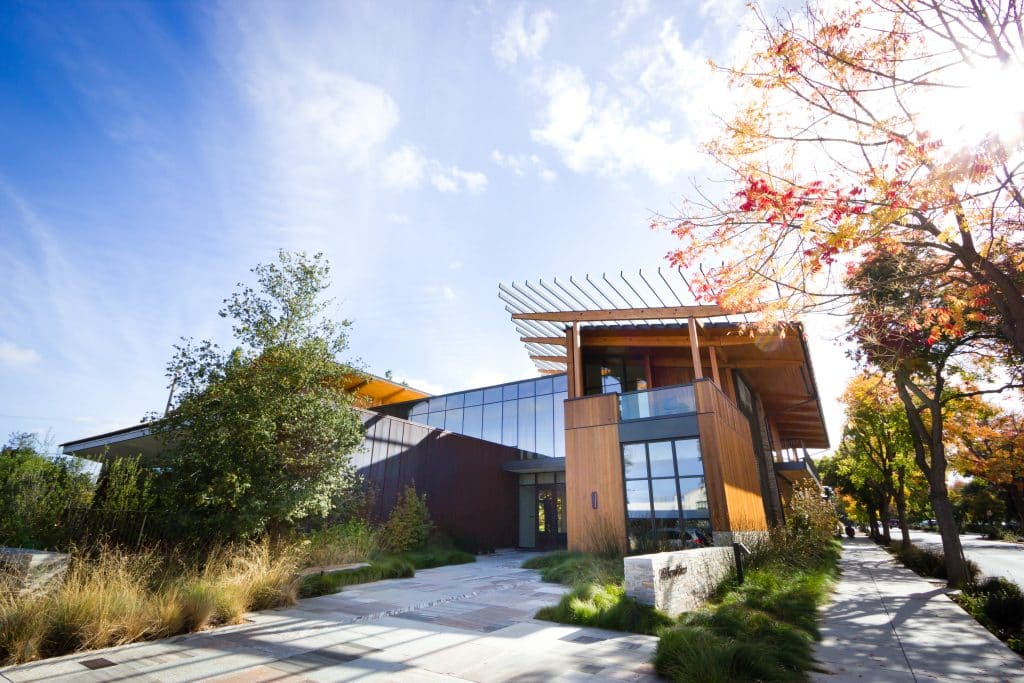The Packard Foundation is a longtime advocate for children, women and families around the world. Our programs work to ensure that all children have opportunities that help them to be healthy, ready for school, and on track to reach their full potential, and to ensure that every woman and girl—no matter where she lives in the world—has the right to live with dignity and have a voice in decisions that affect her life.
There are times, however, when the Foundation chooses to take action, even when the issue does not fit squarely into one of our longstanding program areas or grant portfolios.
Earlier this year, the Foundation made a $250,000 grant to Hispanics in Philanthropy (HIP) for its Family Unity Fund that addresses humanitarian needs of migrants seeking asylum at the U.S.-Mexico border. As the crisis escalated, we wanted to do more.
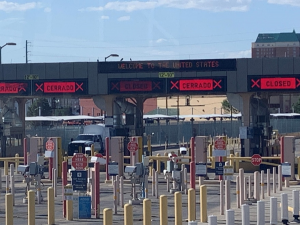
Hispanics in Philanthropy is a nonprofit that has worked for over 35 years and is strengthening Latino leadership, influence and equity by leveraging philanthropic resources, and doing so with an unwavering vision on social justice and shared prosperity across the Americas. The Packard Foundation has supported the organization in a variety of ways over the past 20 years, providing general and membership support, participating in funder collaboratives to support Latino communities, and with emergency relief grants.
Following the initial grant to the Family Unity Fund, we continued to discuss opportunities for the Foundation to support HIP’s Migration and Forced Displacement Program, which they developed in response to the evolving crisis. This program is taking an expansive, long-term approach to addressing the spectrum of issues associated with migration to the United States.
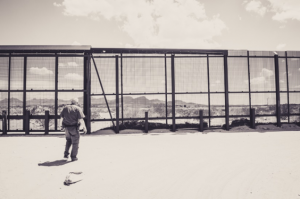
HIP invited us to join an emergency delegation visit to the border between El Paso, TX and Ciudad Juárez, Mexico. This trip, organized by HIP and YWCA El Paso del Norte, was organized in response to the reported inhumane treatment of migrants and as an effort to educate and expose us to the day-to-day realities of the current crisis at the border. During our three-day visit, we toured shelter facilities in both the U.S. and Mexico, spent time at a migrant processing center in Mexico, and were taken on a guided bus tour, by U.S. Customs and Border Protection, along parts of the physical border. We also met and heard from those who are at the center of this crisis, including individuals who were migrating and/or seeking asylum as well as service providers, attorneys, volunteers, government officials, border patrol agents, and journalists.
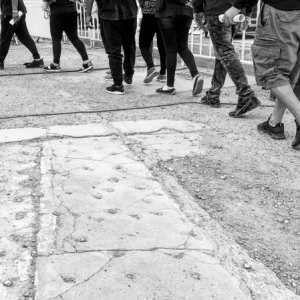
At Casa Vides, a shelter for women and children run by Annunciation House in El Paso, we were shown one of the dorm rooms which held around a dozen bunk beds and was filled to capacity. We also had the opportunity to speak to some of the women living in that room who willingly shared stories about their journeys and their hopes for reaching their final points of destination.
At Casa del Migrante, a shelter for men, women, and children run by the Catholic Diocese of Ciudad Juárez, we were greeted by several children with hugs and curious questions about who we were and the reason for our visit. We were struck by the hundreds of people who were living in the shelter. As we walked through their courtyard, we immediately noticed two distinct lines that had formed on either side. One line, which ran along the outside of the kitchen, was for residents who were waiting for a meal. The other line, which ran toward the exit, was for those who had decided to give up their quest to migrate to the U.S. and were leaving the shelter to return to their home countries or a destination other than the U.S. Each person and family faced great uncertainty, and almost certain danger, in the journey ahead.
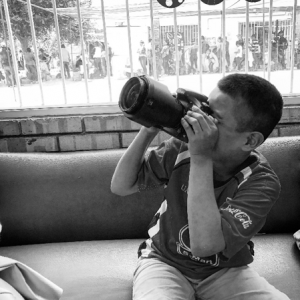
While it was incredibly difficult to witness this situation first hand and to see so many individuals whose lives are filled with desperation and despair, we were also heartened to see a community that has come together to care, advocate, and amplify the voices of the migrants and asylum seekers.
The situation along our border takes a tremendous toll on the individuals and families who are migrating as well as on the communities that are welcoming them. It was clear from our visit that in the face of great adversity, these communities are trying to do as much as they can, and that support is needed so they can continue their work, and also do more.
Significant investments need to be made in the organizations that are meeting emergency needs and helping to preserve and protect the human dignity of migrants and asylum seekers. According to interviews conducted by HIP, with over 200 nonprofit partners located throughout the U.S., Mexico, and Central America, organizations providing critical services continue to operate in emergency mode, are stretched beyond their capacity, and unable to focus their attention on the wellbeing of staff, including experiences of secondary trauma.
Following our trip to El Paso-Ciudad Juárez, the conversations with HIP continued and we ultimately awarded a $5 million dollar grant, which will specifically fund the organization to do the following:
- Provide critical funding to first responders to meet the urgent humanitarian needs of migrants who are in transit along the migrant corridor and waiting out their legal cases in the U.S. and Mexico.
- Help grantee organizations expand and enhance their operations and services to offer an effective response to the scale of the crisis.
- Help build a stronger, nimble, and sustainable transnational network of first responders.
- Support grantee organizations in successfully using a positive, unified narrative about migration and forced mobility.
The Packard Foundation is very pleased to support HIP as it continues this critical work and supports other organizations that are doing the same. Given its comprehensive approach to this issue, their established network and deep partnerships with other nonprofits, government agencies, and funders in the field, and their strong organizational leadership, we are confident that our investment in HIP and this particular program is the right one to make. After our time with the HIP team in El Paso and Ciudad Juárez, we committed to not only sharing what we experienced there and the stories of those we met, but to encouraging others to engage and respond. At a time when the global context for migrants has become increasingly difficult, we believe this is an urgent and critical moment to act. In the words of Congresswoman Veronica Escobar (TX, District 16), this is about “preserving our own humanity as well as preserving the humanity of those at our doorstep.” We are proud to work for a Foundation that is stepping up and responding to this crisis in such a significant way. We hope that our peers and colleagues will do the same.




